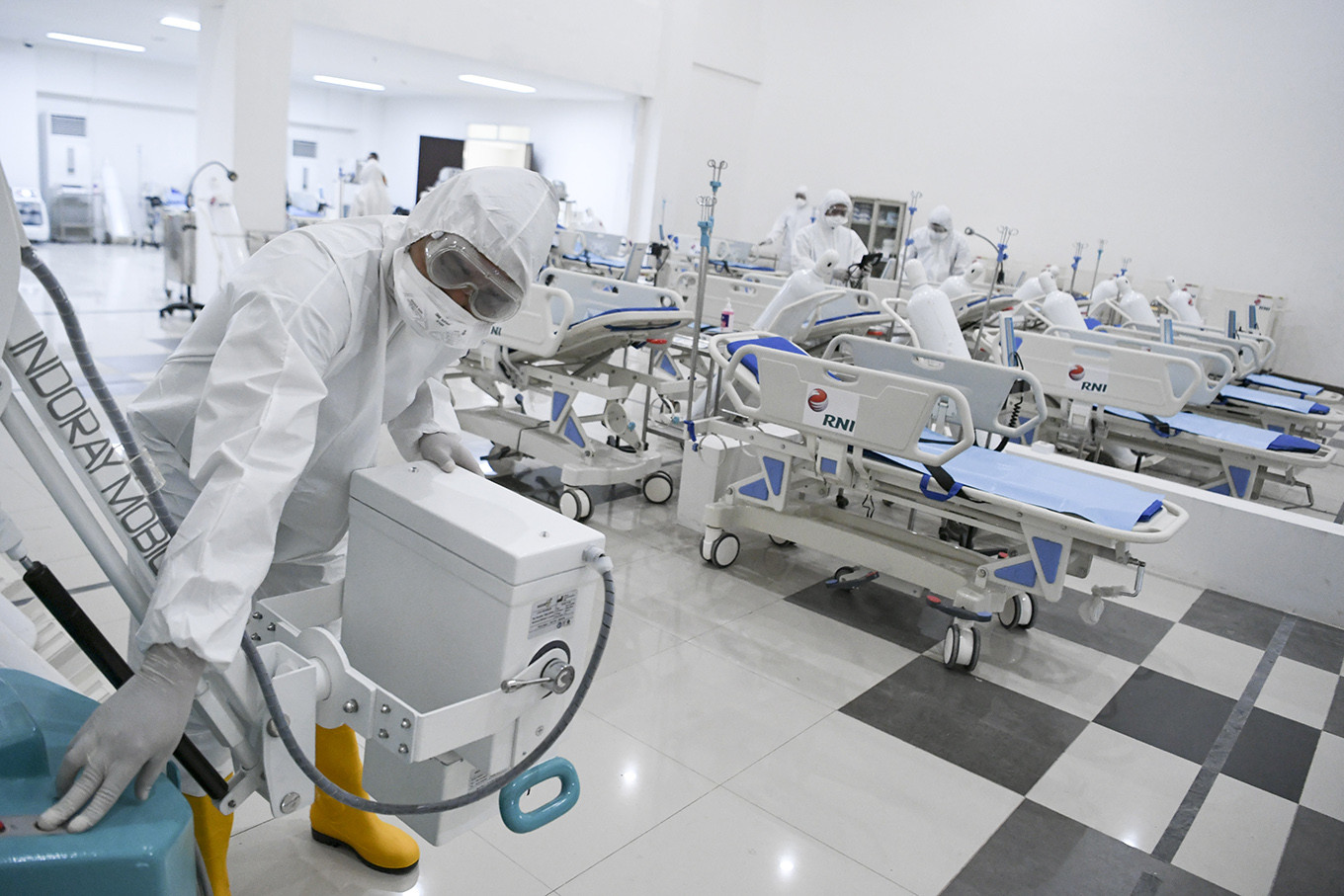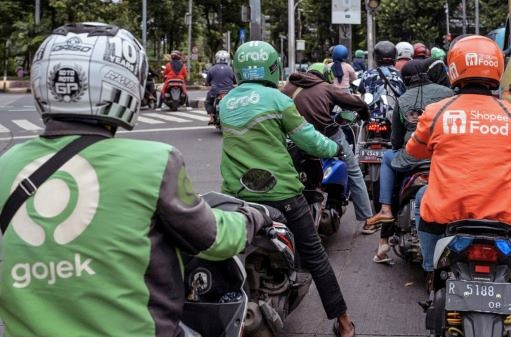Popular Reads
Top Results
Can't find what you're looking for?
View all search resultsPopular Reads
Top Results
Can't find what you're looking for?
View all search resultsJakarta gears up for possible collapse of healthcare system
On Wednesday evening, Jakarta Governor Anies Baswedan decided to reinforce stricter restrictions that will take effect starting next week due to the surge in COVID-19 deaths and rising hospitalizations since mid-August.
Change text size
Gift Premium Articles
to Anyone
T
he healthcare system in Jakarta is at risk of collapsing as hospitals are reporting “alarming” shortages of beds needed to treat COVID-19 patients.
On Wednesday, Jakarta recorded 1,026 new cases and 17 deaths -- bringing the tally to 49,837 confirmed cases, 11,245 of which are active cases. About 4,554 active cases are hospitalized.
With the worsening COVID-19 situation particularly observed after the gradual easing of large-scale social restrictions (PSBB) in June, bed occupancy rates -- the number of people hospitalized with confirmed or suspected cases of COVID-19 -- in the city's hospitals are increasing.
The city’s isolation bed occupancy rate stood at 77 percent and the intensive care unit (ICU) bed occupancy rate at 83 percent as of Sunday. The city currently has 4,456 beds in isolation rooms and 483 beds in ICU rooms. The COVID-19’s task force spokesperson Wiku Adisasmito recently said that 80 percent of bed occupancy is considered a safe rate so that hospitals could carefully and promptly treat patients.
Jakarta also reported a positivity rate of 12.2 percent for the past week, well over twice the World Health Organization standard of 5 percent, after the city met the WHO’s minimum testing rate of one test per 1,000 people per week.
Jakarta recorded a positivity rate below 5 percent a week before reopening the economy in June. The ratio gradually increased starting from the second week of July.
Despite the rising number of positive cases, Jakarta Governor Anies Baswedan has extended the so-called transitional PSBB phase five times since June, with the latest being at the end of August. His move sparked concerns from experts who demanded he reinforce stricter social restrictions in the city.
Read also: Jakarta on ‘right track’ in COVID-19 handling, Anies says, despite rising numbers
A projection by researchers from Social Resilience Lab, Nanyang Technological University (NTU), in collaboration with the LaporCOVID (Report COVID-19) community, shows that the healthcare system in Jakarta may collapse by the end of the year unless a massive intervention is made to curb transmission of the disease.
The modeling, which analyzed data from Aug. 1 until Sept. 3 using the Gaussian equation, predicted up to 3,000 deaths by the end of October as more people requiring hospitalization were unable to access treatment because hospitals had run out of beds, according to NTU researcher Fredy Tantri.
“We developed the best- and worst-case scenarios for the next two months. The [worst-case scenario] model shows that the city's healthcare capacity would be fully occupied in the fourth week of September,” Fredy said in a virtual press conference on Wednesday.
By Wednesday, Jakarta had reported a total of 1,347 deaths since the outbreak emerged.
Around 37 percent of positive cases in Indonesia’s capital have shown medium to severe symptoms that require treatment in hospitals, prompting the Jakarta Health Agency to consider increasing bed capacity.
It is planning to allocate more beds in 13 city-owned hospitals for COVID-19 patients, add beds in 67 referral hospitals, as well as cooperate with private hospitals for additional referral hospitals, Jakarta Health Agency head Widyastuti said. With the scheme, Jakarta will have an additional 851 beds, bringing the total number of beds for COVID patients to 5,432 -- comprising 4,807 isolation beds and 636 intensive care beds.
Read also: Patients crowd hospitals as Indonesia loses 183 'priceless' medical workers
Widyastuti, however, said that to increase the number of medical workers was never an easy task.
The agency earlier this week recruited 1,174 new medical workers, including pulmonologists, internists, anesthetists, pediatricians, nurses, midwives and public health educators who came from across the country.
Indonesia, home to 271 million people, has 0.13 specialist doctors per 1,000 people, fewer than half the government's target of 0.28 per 1,000 people as part of its health reform program, according to National Development Planning Agency (Bappenas) data cited by the Indonesian Medical Association (IDI). The figure for general practitioners is 0.52 per 1,000 people, fewer than half the ideal target of 1.12.
On Wednesday evening Anies eventually decided to reinforce stricter restrictions that will take effect starting next Monday due to the surge in COVID-19 deaths and rising hospitalizations since mid-August. He cited the city administration's projection that isolation beds would be fully occupied in mid-October and ICU beds on Sept. 25 unless the city returned to stricter PSBB.
“Without strict restrictions, it [a collapsed healthcare system] is a disaster waiting to happen,” he said while announcing his decision on Wednesday night.
Read also: Testing disparity looms over Greater Jakarta’s efforts to break chain of transmission
Widyastuti, meanwhile, suggested the central government and other regions adopt a more universal policy to curb the outbreak given the high mobility of people entering the capital.
“[Comprehensive policies] must not only apply to Greater Jakarta but also Indonesia as a whole, as [people from] one province also have the potential to transmit COVID-19 to other people in other provinces,” she said, citing that 30 percent of confirmed cases in Jakarta originated from outside the city.
In an attempt to break the chain of COVID-19 transmission, Anies recently revealed a plan requiring all people in need of mandatory self-isolation to be quarantined at facilities run by the city administration. The plan was a response to the lack of discipline among self-quarantining individuals who occasionally failed to abide by the existing health protocols.
The makeshift hospital at the Kemayoran former athletes village in Central Jakarta will open this month another two towers within its compound to accommodate up to 4,000 patients with mild or no symptoms who need no hospitalization but must self-isolate.










